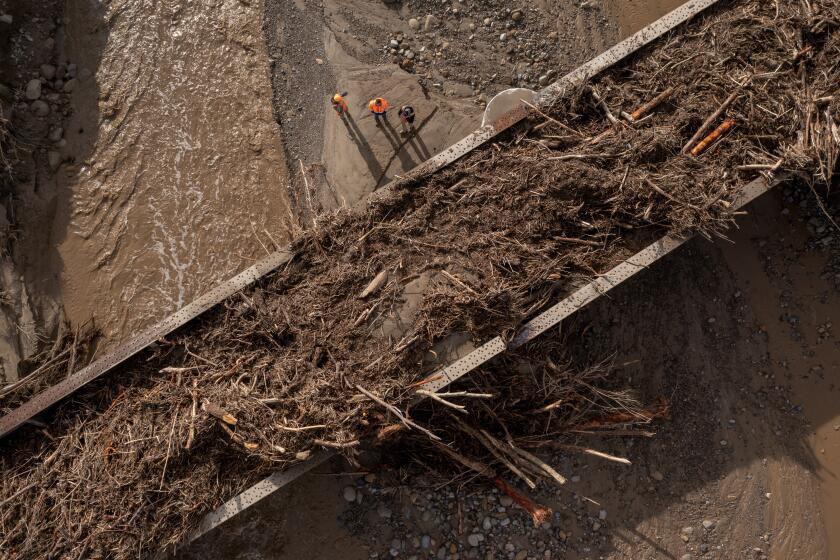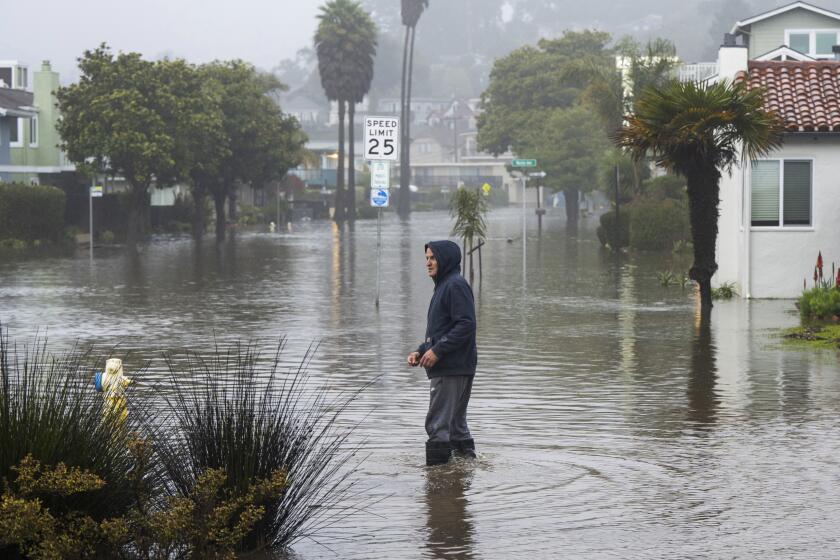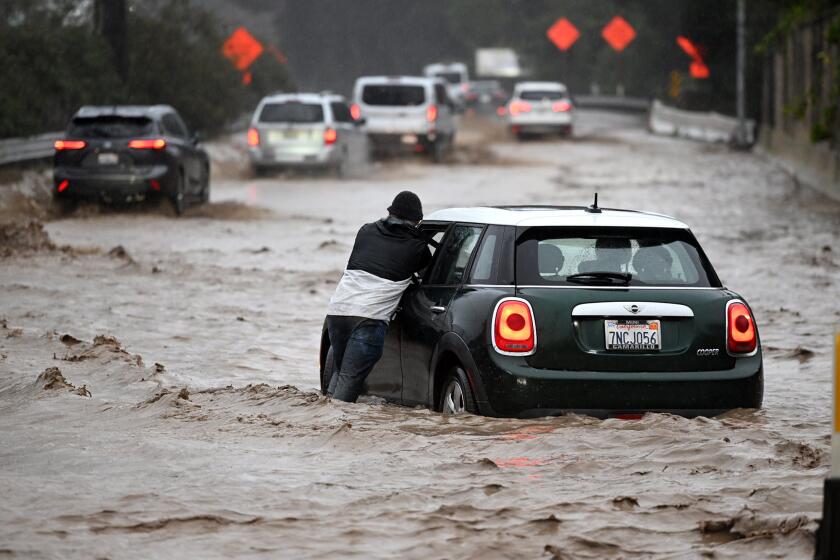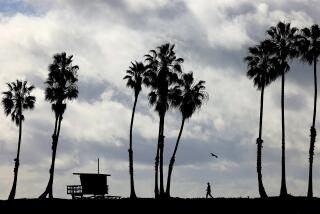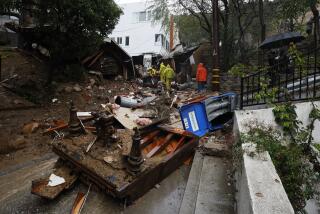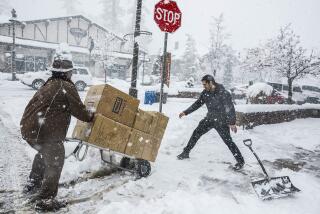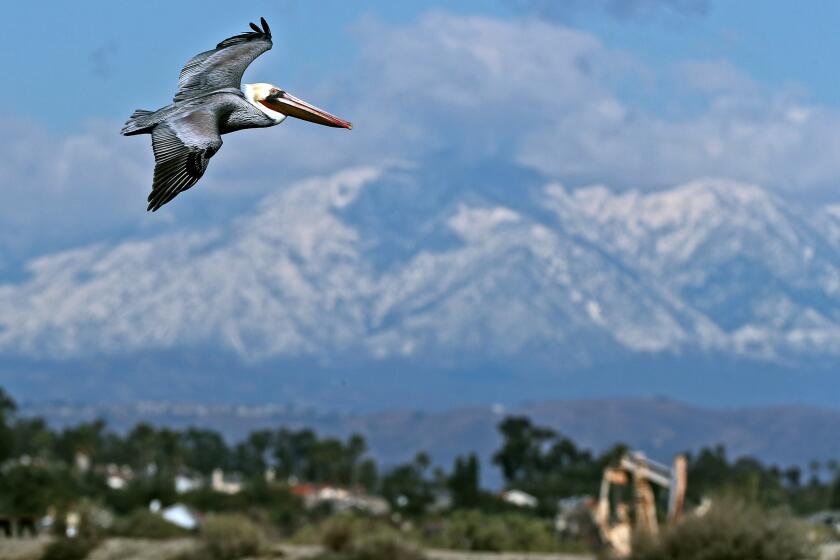Battered coastline, flooding rivers trap residents, bring misery in Santa Cruz County
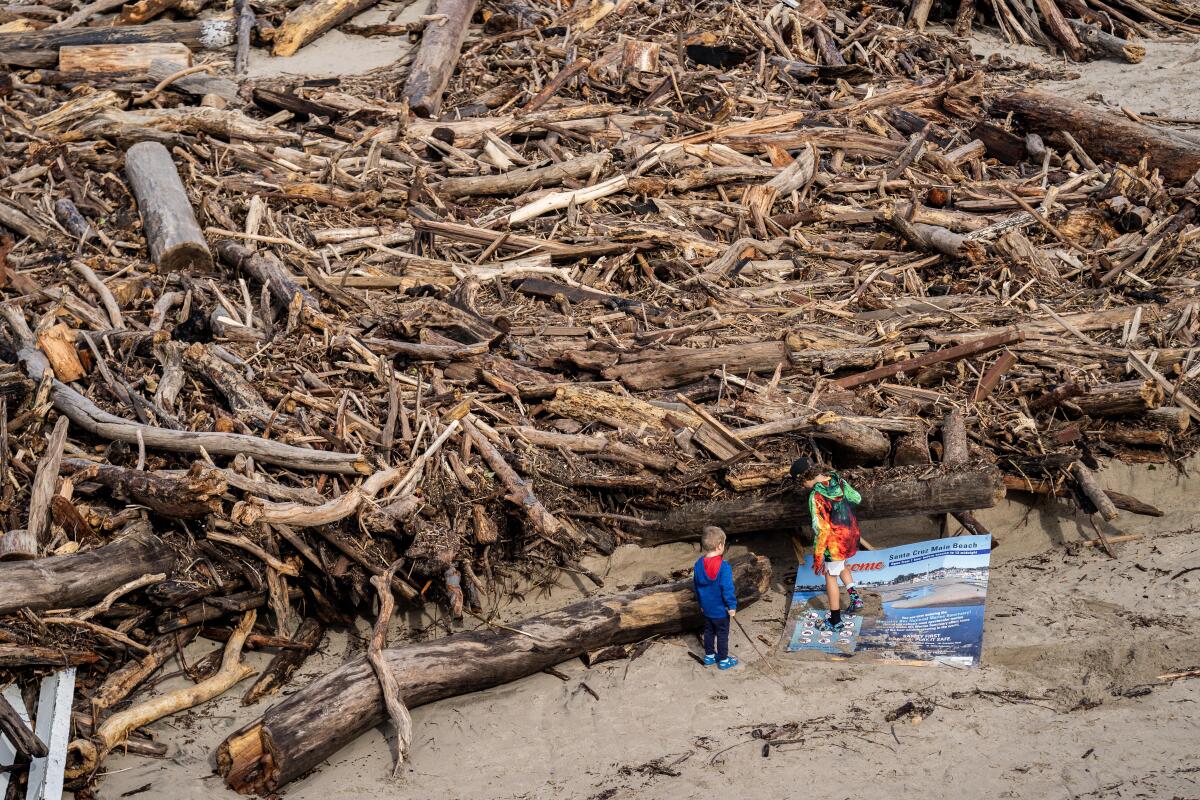
The parking lot behind JJ’s Saloon was coated in three inches of mud. It was midday Monday and the Santa Cruz County saloon had now flooded three times in 10 days.
The latest flooding was all from direct rain, bartender Jeff Ferreira said, but last week Soquel Creek had risen over its banks and gushed into downtown.
“Had to be a couple of feet,” the 56-year-old bartender said as he pulled up a video from a few days earlier showing the water-logged lot behind the saloon.
On Monday, as huge swaths of Central and Northern California were still assessing damage from a quick succession of storms last week, another winter rain pelted the region, triggering floods that claimed the life of a motorist and swept away a 5-year-old boy who was trying to cross a road with his mother. Conditions were so unsafe Monday afternoon that officials called off the search for the boy.
Another winter storm unleashed heavy rain in Northern California, causing flooding in Santa Cruz County and beyond. President Biden declares a state of emergency.
Debris slides closed part of Highway 17, the high-speed mountain road that connects San Jose and Santa Cruz, and so much rain fell so quickly that, in places, the San Lorenzo River rose over its banks. (National Weather Service data show that the river crested at about 24 feet around 8 a.m. and then receded as rain eased.)
Across Santa Cruz County, people posted pictures of felled trees, flooded cars and a collapsed bridge. In Felton Grove, the storm water rose so high it engulfed the entire metal pole of a stop sign, leaving only the red octagon, which appeared as if it were floating atop the muddy water. Rescuers zipped through inundated streets on a jet ski. They slowed in front of homes, asking if everyone was alright.
On Facebook, the Santa Cruz County sheriff’s office posted warnings throughout the day:
The powerful storm that knocked out power, toppled trees — including one that killed a toddler — and flooded homes along the coast in Santa Cruz continued its march through the region.
“Please avoid unnecessary travel.”
“Heavy rains and runoff.”
“Evacuation order”
For many longtime residents of the region, the storm transported them back to a deadly deluge four decades earlier.
During the first week of January 1982, it rained day after day, until a section of a hillside broke loose near the mountain town of Ben Lomond and cascaded down, triggering a mudslide that killed 10 people and destroyed more than two dozen homes. The bodies of the two youngest victims — brothers ages 7 and 5 — were never found.
During his Monday morning commute, Colin Eppard looked out toward the point where the San Lorenzo River pours into the Pacific. It was gushing so hard that it created a standing wave.
At least nine rivers across the state could exceed the flood stage Monday, and 32 locations could exceed the flood monitor stage.
The 32-year-old, who lives in nearby Watsonville, said he’d never seen the river flowing with as much ferocity as he had that morning. An avid surfer, Eppard said he’d noticed that the waves were breaking in spots that only show up after gigantic storms.
“Driving along the coastline and watching the last two big pushes of these storms, I jokingly said to my wife that this could rearrange the whole coastline,” he said. “And it quite literally has.”
A few hours later in downtown Capitola, Craig French surveyed the swollen Soquel Creek, which like the San Lorenzo, starts in the Santa Cruz Mountains and empties into Monterey Bay.
The severity of Monday’s storm, French said, took him back to the storm in 1982, when waves crushed the end of the wharf and parts of the town flooded.
“We haven’t seen anything this bad in 40 years,” said French, a former president of the Santa Cruz County Board of Supervisors.
Mick Routh, Capitola’s former mayor, said that during the 1982 storm some areas in nearby mountains got 18 inches of rain in two days. Between last September and this week, Routh said, the region had recorded 32 inches of rain.
“And it’s not over yet,” he said.
The toll of the storm includes a 5-year-old boy who was swept away by floodwaters and a motorist who died after entering a flooded roadway.
For Shane Terry, a 33-year-old resident of Felton, Monday’s storm translated into a forced day off.
He began his morning commute to San Francisco, where he works as a produce distributor, but eventually decided to turn back after getting to a point where the road was logged with 3 feet of water. Even in his SUV, he said, it wasn’t worth the risk.
At one point, he stopped at a bridge that spans the San Lorenzo River, he said, and the water was so high that it was lapping up almost to the bottom of the bridge.
“I don’t think I’ve ever seen it this bad,” said Terry, who has lived in the area his whole life. “There was one storm like eight years ago that was really big, and a lot of streets couldn’t handle the water, but I don’t think it’s ever gotten this high.”
More to Read
Start your day right
Sign up for Essential California for news, features and recommendations from the L.A. Times and beyond in your inbox six days a week.
You may occasionally receive promotional content from the Los Angeles Times.

